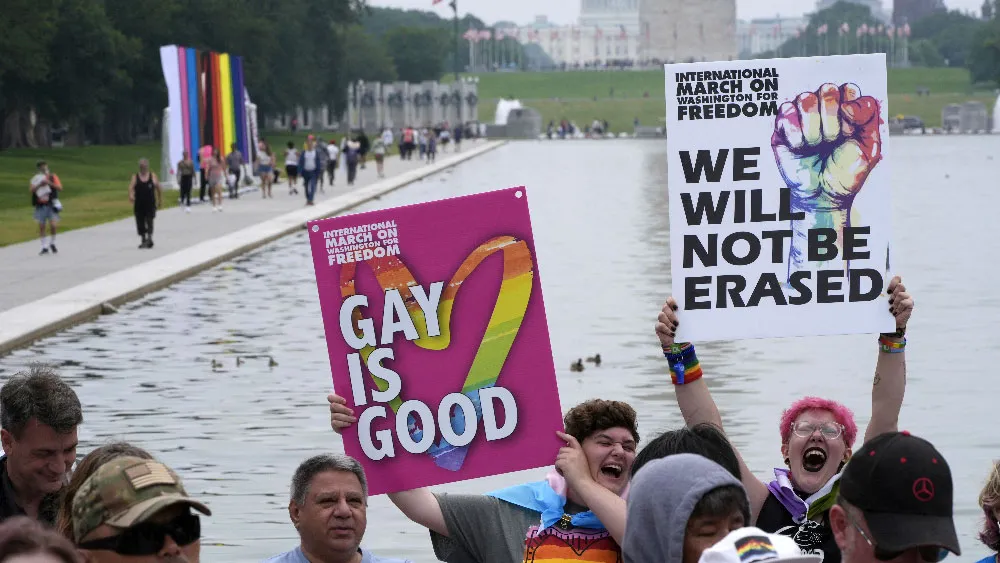February 22, 2016
AIDS Action and Fenway Are 'Getting to Zero'
EDGE READ TIME: 4 MIN.
AIDS Action Committee and Fenway Health announce that the Getting to Zero Coalition will formally convene at Fenway Health's Ansin Building on Febraury 25 from 6-8 p.m.
Douglas Brooks, director of the White House Office of National AIDS Policy and Jonathan Mermim, director of the National Center for HIV/AIDS of the US Centers for Disease Control, will attend and present on the federal government's role in support of local Getting to Zero campaigns and putting the Massachusetts Getting to Zero campaign in a national context.
Other presenters will include Hyman Scott, MD, a researcher with the San Francisco Department of Public Health, whose Getting to Zero campaign resulted in an 18 percent drop in new HIV diagnoses, and Dawn Fukuda, director of the Massachusetts Department of Public Health's Office of HIV/AIDS, who will provide an overview of the HIV epidemiology in Massachusetts.
"Thanks to a combination of evidence-based behavioral interventions like needle exchange and advances in HIV treatment and prevention, we've seen a 41 percent decrease since 2000 in new diagnoses of HIV in Massachusetts," said Carl Sciortino, executive director of AIDS Action Committee. "But we still have about 700 new infections each year. We are convinced that we can reduce those 700 infections to zero with widespread implementation of the latest HIV prevention tools such as pre-exposure prophylaxis, and increasing efforts to regularly test those who are more vulnerable to HIV infection, such as gay and bisexual men, and connecting those who are newly diagnosed with healthcare providers."
The Getting to Zero Coalition is a consortium of HIV/AIDS service providers and organizations (see list below) advocating for a coordinated strategy by the state to drive rates of HIV transmission down to zero new infections. The Massachusetts Getting to Zero Coalition was inspired by campaigns in New York State, San Francisco, and Washington State that have seen advocacy communities collaborating with legislators and public policy makers to establish and implement a high-impact plan of attack that has proven to dramatically reduce new HIV infections: strategic uptake of the daily pill known as PrEP (pre-exposure prophylaxis) by those who are most vulnerable to HIV infection; increased testing of populations with high rates of new diagnoses; and a focus on connecting newly diagnosed patients with treatment and ensuring they remain in care.
"Right now we have the medical and scientific tools needed to treat everyone living with HIV, test people for HIV on demand, and connect those with HIV to medical care," said Kenneth Mayer, MD, Co-Chair and Medical Research Director of The Fenway Institute at Fenway Health. "But we cannot do this work in isolation. The Getting To Zero Coalition represents an exciting giant step forward in the work that needs to take place to eliminate HIV infections in Massachusetts."
These are the members of the Getting to Zero Coalition to date:
ABCD Health Services
AGLY Network
AIDS Action Committee
AIDS Project Worcester
AIDS Support Group of Cape Cod
BAGLY, Inc.
Community Servings
#CONNECTEDBoston
Dimock Center Community Advisory Board CAB
Fenway Health
Gay & Lesbian Advcocates & Defenders (GLAD)
Harvard Center for Health Law and Policy Innovation
Hispanic Black/Gay Coalition
Justice Resource Institute (JRI)
Massachusetts Health Council
Massachusetts Organization for Addiction Recovery (MOAR)
Massachusetts Public Health Association
Massachusetts Transgender Political Coalition
MassEquality
Montachusett Opportunity Council , Inc
Multicultural AIDS Coalition
NEAETC
Out Metrowest
ProjectABLE
Search For A Cure
Tapestry Health
The Safe Zone
Transcending Identities
Victory Programs - Boston Living Center
AIDS Action Committee of Massachusetts is the state's leading provider of prevention and wellness services for people vulnerable to HIV infection. It provides services to one in six people in Massachusetts living with an HIV diagnosis. These services include HIV counseling and testing; needle exchange; mental health counseling; housing assistance; and legal services. AIDS Action works to prevent new HIV infections, support those affected by HIV, and tackle the root causes of HIV/AIDS by educating the public and health professionals about HIV prevention and care; and advocating for fair and effective HIV/AIDS policy at the city, state, and federal levels. Founded in 1983, AIDS Action Committee of Massachusetts is New England's first and largest AIDS service organization. In 2013, AIDS Action formed a strategic alliance with Fenway Health that will allow the two organizations to work more closely together and improve delivery of care and services to people living with HIV/AIDS.
The Getting to Zero Coalition meeting will take place Thursday, Feb. 25 from 6-8 p.m. at Fenway Health, Ansin Building, 1340 Boylston St., Boston. The event is free and open to the public; refreshments will be provided.
For more information, visit www.aac.org.


